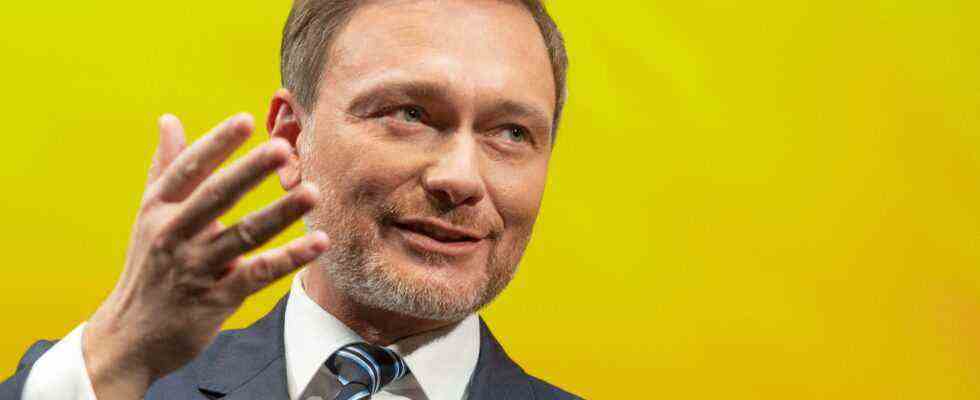Status: 01/17/2022 10:52 a.m
Christian Lindner has his premiere at the meetings of the Eurogroup and the EU finance ministers. On one issue, many are curious about his position: How does he want to reform the EU debt rules?
Europe’s expectations of the finance minister are high, and they come from very different directions. EU countries in the north want an ally when it comes to saving. Countries from southern Europe are counting on the new Berlin department head to loosen up. Both sides can still hope. Because six weeks after taking office, Christian Lindner has not yet decided exactly how he wants the reform of the EU debt rules to be. After the coalition agreement was signed a good month ago, he explained: “For this reason too, it is advisable for the economic and monetary union to continue to commit itself to the idea of stability in connection with efforts to promote growth and investment, and the future federal government will also commit itself to this contribute to the conversation about the reform of the fiscal rules.”
Different views among friends
In mid-December, Lindner visited his French colleague Bruno Le Maire in Paris – two liberals who call themselves friends. Actually, this friendship should end with the money. Because Le Maire describes the stability pact as superfluous. The FDP, on the other hand, wants him loud election program apply it fully again after the crisis and penalize countries more severely if they don’t put their budgets in order. Joint borrowing, as during the pandemic, should remain a one-off.
But the FDP chairman and Federal Finance Minister Lindner was not so clear in Paris: “What is the right fiscal policy in view of the risk of inflation and the need for investments in the public and private sectors – this is about more than debates about rules, it is about political measures ” he said there.
France and Italy have already made a commitment: They want to make it easier for member states to incur debt for future-oriented tasks. Certain investments should not count when calculating annual deficits. The Netherlands, Austria, Denmark and Sweden, on the other hand, traditionally advocate strict rules.
How strict are the frugal four?
However, these so-called “thrifty four” are no longer what they used to be: The new left-liberal finance minister in the Netherlands, Sigrid Kaag, advocates a softer course towards highly indebted EU partners. In Austria, Gernot Blümel has resigned as minister – he had expressly wished for Lindner in November in the joint fight for fiscal sustainability.
At the Epiphany meeting of the FDP, he said exactly what his predecessor Olaf Scholz (SPD) always answered when asked about the future of the EU debt rules: “They have also proven their worth in terms of the flexibility of their application in the crisis.” In fact, the rules are suspended until next year to allow EU governments to help their economies through the crisis regardless of debt.
Reduce debt, expand climate protection
According to this, the Stability and Growth Pact must become simpler and more up-to-date, according to a broad consensus in politics and science. The most important requirements: The annual deficit must not exceed three percent of economic output, and the total debt must not exceed 60 percent. Only around a third of the euro countries can do this. For some, this target has been unattainable for years.
For Guntram Wolff from the Bruegel think tank in Brussels, the sustainability of public finances is important, combined with the possibility of making the necessary climate investments: “Therefore a clear plea for a reform of the deficit and debt rules, especially with a focus on climate investments. But otherwise I would rather warn against aiming for a general softening of the rules, because the need for adjustment in the next few years is considerable and the situation may not look rosy at all once interest rates start to rise.”
And what does the finance minister think? Many of his colleagues in the EU are curious. He has already spoken to some of them in the past few days. Today he is meeting them all for the first time in a large group in Brussels.
Lindner and EU debt rules: falcon, dove or whatever
Jakob Mayr, BR Brussels, 17.1.2022 10:06 a.m

